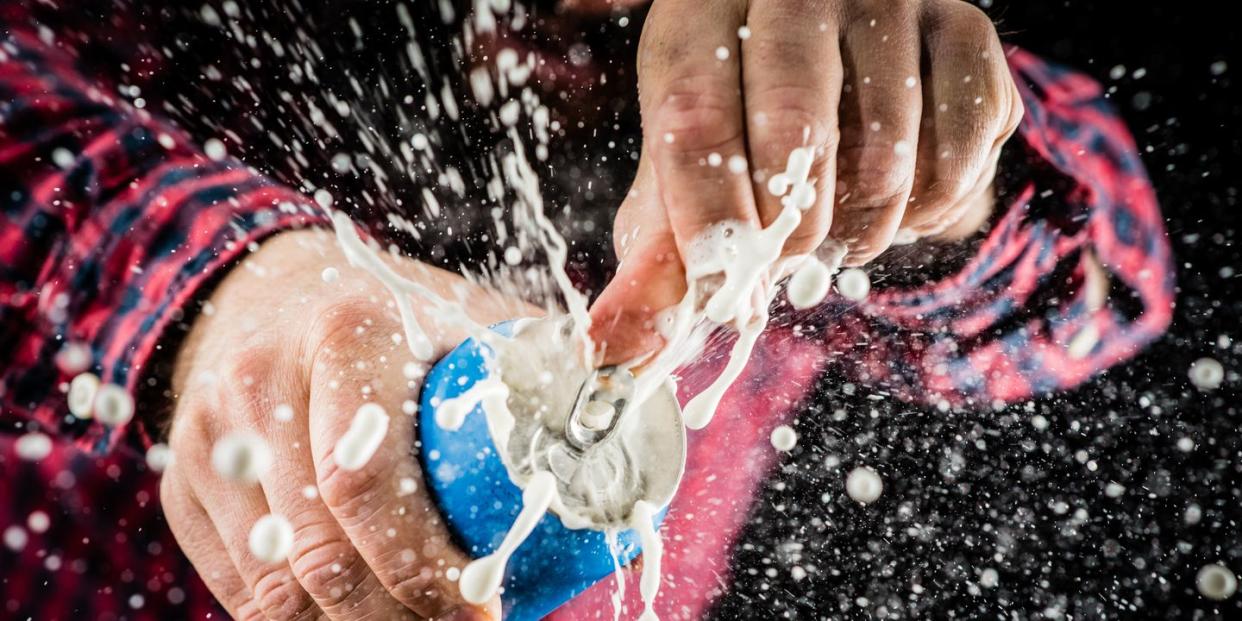How to Find Out if Your Beer Is Actually Vegan

AS IF BEING a vegan isn't already tricky enough with its restrictions, then you have to consider if your beer is vegan too.
You might think that beer—which is made with hops, grains, and water (all vegan things)—is totally and completely devoid of animal products or byproducts from animals.
But then there are those ingredients that are used in beer production that go beyond those basic three.
Some non-vegan beers are kind of obvious. There's beer that's brewed with honey (honey comes from bees), milk stouts and some hazy IPAs and milkshake-style beers that use lactose (lactose comes from cows), and oyster stouts (oysters, which, yes, are used in the brewing process, come from, uh, oysters).
But other less-than-obvious non-vegan beers leverage one old-school ingredient: fish bladders, also know as "finings."
Finings are actually a gelatin that develops after boiling the skin, cartilage, and bones of animals. "Isinglass," a type of fining (stick with me here), comes from the swim bladders of sturgeon or tropical fish.
Finings are a sort of natural filter for an off flavors that may develop from yeast during the brewing process—but they also prohibit a beer from being called vegan.
Fortunately for vegans, finings aren't that much of a thing anymore. Modern brewers have turned to centrifuges and advanced filtration techniques. Guinness, which made headlines a few years ago for using finings, has stopped and their beer is also now vegan.
Budweiser and Bud Light are vegan. As are Michelob, Michelob Ultra, and even Natural Light. There's a flight of craft brewers offering a range of vegan beers, which you can all find here.
You Might Also Like

